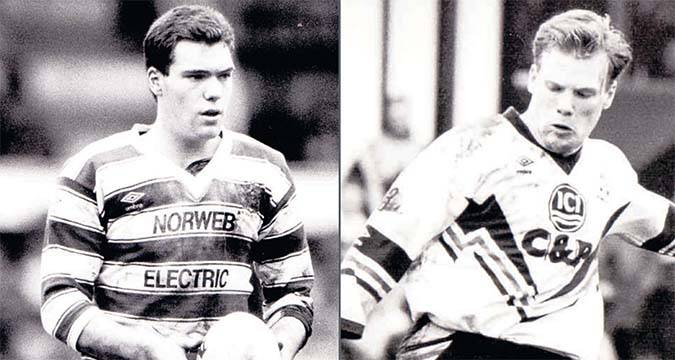 What’s it like to be the son of a legend? Last week, Colin Tyrer told us about his great career with Leigh, Wigan, Barrow and Hull KR. This week, his sons Sean and Christian recall their time in the professional game.
If you could relive one day from your careers, which would it be?
ST: The Lancashire Cup semi-final when I played for Wiga
What’s it like to be the son of a legend? Last week, Colin Tyrer told us about his great career with Leigh, Wigan, Barrow and Hull KR. This week, his sons Sean and Christian recall their time in the professional game.
If you could relive one day from your careers, which would it be?
ST: The Lancashire Cup semi-final when I played for Wiga Rugby League Heroes: Sean and Christian Tyrer
 What’s it like to be the son of a legend? Last week, Colin Tyrer told us about his great career with Leigh, Wigan, Barrow and Hull KR. This week, his sons Sean and Christian recall their time in the professional game.
If you could relive one day from your careers, which would it be?
ST: The Lancashire Cup semi-final when I played for Wiga
What’s it like to be the son of a legend? Last week, Colin Tyrer told us about his great career with Leigh, Wigan, Barrow and Hull KR. This week, his sons Sean and Christian recall their time in the professional game.
If you could relive one day from your careers, which would it be?
ST: The Lancashire Cup semi-final when I played for Wiga 